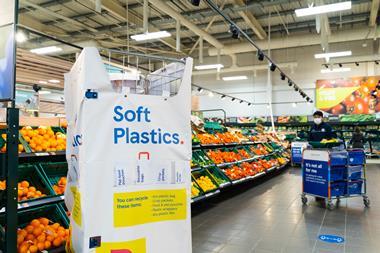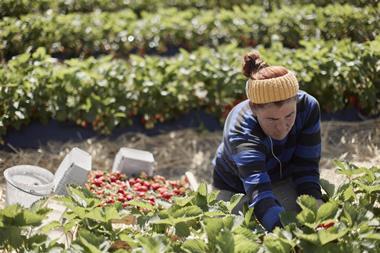
Food and drink businesses are struggling with the mounting pressure of sustainability compliance, according to new research by a global law firm – with many now planning to leave Europe to cope with stricter requirements.
A DLA Piper study found food and drink companies felt “overwhelmed” and were “struggling to meet ESG and disclosure obligations”, with more than half (54%) saying they are planning to relocate operations and manufacturing outside Europe to “manage regulatory pressures”.
Companies are increasingly having to report on their sustainability progress, from greenhouse gas emissions reduction to human and labour rights due diligence.
New environmental laws rolling out across Europe include the EU’s Corporate Sustainability Reporting Directive (CSRD), requiring large companies to publish regular reports on the social and environmental risks they face, and on how their activities impact people and the environment, along with the EU’s Deforestation Regulation (EUDR), which aims to rid supply chains of illegal deforestation.
The UK too is set to pass an amendment to the Environment Act, requiring businesses to produce annual reports proving forest-risk commodities such as soy and cocoa did not come from deforested land.
Britain also has toyed with plans for several other mandatory reporting requirements, from food waste to eco-labelling, and a new standard system of measuring and reporting Scope 3 greenhouse gas emissions.
Read more: Plans for mandatory approach to eco-labels on food and drink scrapped
The law firm’s research found the majority of companies were either in the process of relocating operations outside of Europe or considering it as an option. Others were adopting a dual corporate structure to separate EU and non-EU entities.
DLA Piper warned companies that “offshoring to avoid EU crosshairs risks companies jumping out of the frying pan, and into the fire”.
Mills & Reeve senior associate Judith Houston told The Grocer that while it was “ultimately a commercial decision for any business, from a legal perspective, if they were considering this, we would advise them to carefully consider the costs and benefits of relocation”.
“These costs include reputational risks (explaining this decision to relocate to stakeholders is likely to be challenging), tax issues, employment concerns and access to capital.
“Additionally, the number of countries implementing similar legislation is increasing rapidly, so there is no guarantee the new location won’t soon have its own regulations.”
Nearly 70% of food and drink businesses surveyed by DLA Piper admitted they wouldn’t be able to comply with all regulations and “are having to make tough decisions on what to prioritise”.
Read more: Food businesses urge government to introduce mandatory food waste reporting
Over one-third of respondents saw leadership as “not having understood the scale of transformation taking place in sustainability law and the level of investment required to comply”, and only 28% of organisations were confident they would produce a fully robust sustainability report which would meet market expectations.
“There are concerns in the market regarding the robustness of reporting,” Houston said. ”The sheer volume, depth, and complexity of the information that needs to be gathered and reported is intimidating for many and presents a substantial challenge for most companies.
“Additionally, the understanding of the requirements and the appreciation of the time and resources needed are often underestimated.
“This is especially true for companies that do not directly fall under the new reporting frameworks but are indirectly impacted because they must report their ESG performance data to customers who are in scope.”
International co-chair of DLA Piper’s consumer goods, food and retail group Nick Rock said the “mounting obligations are forcing business leaders to make difficult decisions in balancing the rising costs of compliance, commercial and stakeholder pressures, and long-term sustainability commitments”.
He added businesses had “a real opportunity” to “look beyond short-term compliance burdens to see the commercial opportunity therein”.
Read more: EU announces delay to anti-deforestation law
“Embracing long-termism and a whole-business approach to ESG strategy creates opportunities for building customer trust, operational resilience, and a strong competitive advantage.”
Despite the majority of companies noting they were in the process of implementing technology that would help boost full supply chain traceability and transparency, only 19% of organisations are confident they have the data to show that all of their direct suppliers are compliant – a figure that drops to 12% for indirect suppliers.
Notably, 73% of F&B businesses are going to or already have raised prices of product lines to preserve their margins (5% more than fashion or wider consumer goods markets). But they are less likely (58%) to be scaling back product lines as a result of sustainability obligations, versus 70% in fashion.



















No comments yet